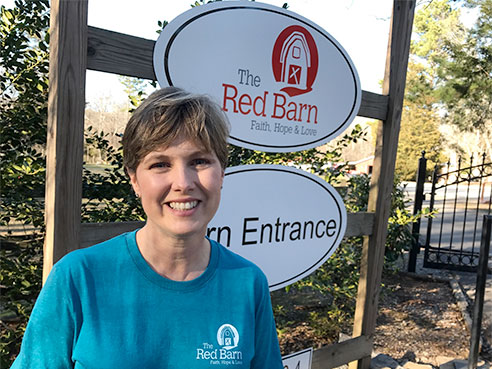Women experience heart disease differently than men. Some women dismiss symptoms as menopause and never receive the treatment they need. Many have to advocate for themselves to receive proper care in order to survive.
UAB is changing that.
Starting in 2014, Mountain Brook resident Joy O’Neal said she was not feeling like herself. After numerous trips to her doctor, she was left with no answers.
“Every year, I would go to the doctor and say I didn’t feel right,” she said. “I would be gaining weight, having shortness of breath and would feel really tired. After all the visits, not once did they think to check my heart.”
O’Neal thinks that, because of her age, her symptoms were dismissed as menopause, stress or even allergies. It was not until a routine physical for a life insurance policy revealed an abnormal EKG reading that she found out something that would change her life forever.
 Beginning in 2014, Mountain Brook resident Joy O’Neal said she was not feeling like herself. After numerous trips to her doctor, she was left with no answers. “Finally, I found out that I had congestive heart failure, and that my ejection fraction was in the 30s, and anything under 40 is considered congestive heart failure,” O’Neal said. “They did other tests and determined it was not a blockage, and they didn’t know what else to do; but I knew what to do — get to UAB as soon as I could.”
Beginning in 2014, Mountain Brook resident Joy O’Neal said she was not feeling like herself. After numerous trips to her doctor, she was left with no answers. “Finally, I found out that I had congestive heart failure, and that my ejection fraction was in the 30s, and anything under 40 is considered congestive heart failure,” O’Neal said. “They did other tests and determined it was not a blockage, and they didn’t know what else to do; but I knew what to do — get to UAB as soon as I could.”
O’Neal made an appointment with Salpy Pamboukian, M.D., director of the UAB Women’s Heart Health Clinic, and was quickly put at ease by her expertise and caring demeanor. Pamboukian prescribed an aggressive treatment plan because of how long O’Neal had gone without treatment.
“Any time you get an unexpected diagnosis, you are just absolutely floored,” O’Neal said. “She just put my mind at ease, and she said, ‘We’re going to take care of you, and you’re going to be back at the barn soon.’”
O’Neal is the founder and executive director of The Red Barn, a therapeutic equine riding center in Leeds, Alabama. Staff at The Red Barn give horseback riding lessons to children and adults with varying disabilities.
“We see it as an opportunity to give folks who are hurting a place to come feel better,” she said.
Women typically experience different symptoms from men’s during heart attacks. Symptoms include sweating, pressure, nausea and jaw pain. These symptoms may often be brushed off as the flu, stress or menopause; but Pamboukian says that — when it comes to heart disease — there is no reason to be passive about these symptoms. She says O’Neal’s persistence is a major factor as to why she received treatment and is doing much better now.
“She had symptoms that were going on for a while, and they were not the typical types of symptoms that many heart patients experience,” Pamboukian said. “She had seen lots of providers who couldn’t find out what was going on with her, and she persisted because she knew something was wrong.”
At the time of her diagnosis, O’Neal did not know of any family history of heart disease, but has since learned that she does share a family history on her father’s side, and recently lost a half-brother to it.
“Once women are identified as having heart disease, the treatments are very much the same,” Pamboukian said. “However, one of the differences is hormone replacement therapy, so women who are undergoing menopause may be required to have hormone replacement, so that could change your risk for cardiovascular disease.”
Now that her disease is being managed properly, O’Neal is thankful to be back at the barn doing what she loves. She sees herself as an advocate for the children that come to the barn each week and for other women like herself.
“The kids we see here also have disabilities,” O’Neal said. “I thought what a great inspiration to follow my doctor’s orders to do exactly what she says, and to become an advocate for women to be checked for heart disease.”